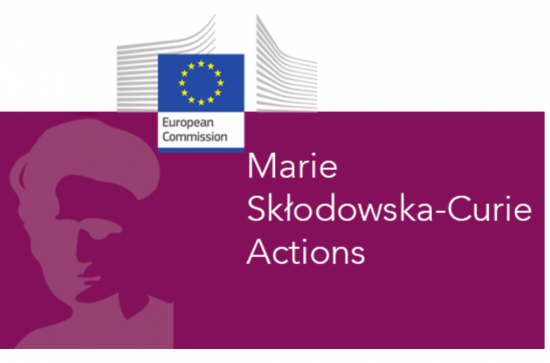
Maynooth University awarded four prestigious MSCA fellowships
Maynooth University has been awarded four prestigious Marie Skłodowska-Curie Actions (MSCA) Postdoctoral Fellowships. Four female awardees will work across diverse areas including materials science, media studies, Celtic studies, and theoretical physics.
The four researchers, from Germany, Britain, Austria and India, will join MU and work with established academics to develop innovative new sustainable energy storage devices, new ways to incorporate accents, dialects and diversity into digital voices, research Iron age Celtic languages and identity in northern Italy, and uncover the origins and evolution of supermassive black holes.
MSCA Postdoctoral Fellowships enable Europe’s best early career researchers to join the University for two years, and support career development and training of researchers through international and intersectoral mobility.
The MU MSCA Awardees are:
Dr Joanna Walsh, ‘Ye wha’? Class, Gender, Race and Age: Fixing Diversity in Text-to-Speech Accessibility Readers’
Voices used by chatbots, accessibility programs and text-to-speech readers in English-speaking digital technology, present those voices as young, white, RP (received pronunciation), and middle/upper class. Prompted by research into the negative impacts of underrepresentation, Ye wha’? will develop an open-source web-based text-to-speech reader app using an alternative range of voices in terms of gender, age, class, race and regional accent. The app will be freely available for practical and creative use.
Supervisor: Dr Jeneen Naji, Department of Media Studies
Dr Corinna Salomon, ‘Celtic Language and Identity in Northern Italy and the Alpine Region’
This project investigates the linguistic and sociolinguistic landscape of Celtic Northern Italy and the Alpine region during the Iron Age. Through close linguistic analysis of the Cisalpine Celtic corpus of inscriptions and integration of the data into their archaeological and historical context, the project will result in a better understanding of the earliest attested Celtic languages in their historical and social dimensions, and offer new methodologies to scholars and professionals working in Celtic studies, fragmentary languages, ancient history, and digital humanities.
Supervisor: Prof David Stifter, Department of Early Irish
Dr Sukanya Ramaraj, ‘Energy Level Engineering of Basal plane of Metal Dichalcogenides (MoSe2 and WSe2) by Doping of Transition-Metals for the Fabrication of Energy storage Devices’
This project addresses the competing challenges of climate change and increasing demands for, and cost of, electrical power. For society to maximise the transition to green renewable energy sources advanced energy storage systems are of vital importance. To meet this, the holy grail of the energy industry is to develop a device that stores the maximum amount of energy in the smallest amount of space, can speedily charge and discharge that energy, and maintains its capacity to do so over long periods of time, instead of degrading over time like current batteries. This project aims to develop and improve upon current supercapacitors: devices that charge and discharge energy far faster than batteries, but have drawbacks in terms of how much energy they can store. The research will encompass Physical Chemistry, Physics, Materials Science and Electrochemistry with potential global impact in the energy sector.
Supervisor: Prof Carmel Breslin, Department of Chemistry
Dr Ricarda Beckman, ‘Black hole dynamics and the origin of supermassive black holes’
Every massive galaxy in the Universe contains a supermassive black hole in the centre, which has grown from a smaller black hole, a so-called seed black hole. It is thought that galaxies must have acquired their seed black holes in the early Universe, but recent research has shown that the dynamics of seed black holes in early galaxies are complex, and that seed black holes struggle to find their way to the centre of future host galaxies. This will be the first large-scale study of seed black hole dynamics in the early Universe using numerical simulations to design a high-resolution simulation able to fully resolves seed black hole trajectories.
Supervisor: Dr John Regan, Department of Theoretical Physics
